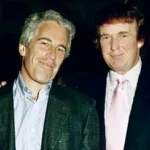
Saudi Arabia and UAE welcome Trump, but fear his return could threaten peace with Tehran and reignite the flames of war in the Middle East
Saudi Arabia and the United Arab Emirates signaled that they remain committed to the reducing tensions with Iran as they prepare for the return of Donald Trumphoping he can end a year of war in the Middle East, but fearful that your unpredictability could further inflame tensions.
Leaders like Saudi Arabia’s Crown Prince Mohammed bin Salmanwere among Trump’s most enthusiastic Arab supporters during his first term as US president, welcoming both his adversarial approach to Iran and his transactional style after years of Gulf frustration with American policy.
But in the years that followed, the two Gulf powers— Saudi Arabia and United Arab Emirates — changed direction, seeking to get involved with Tehran amid doubts about US commitment to its security.
This became more urgent after the Hamas attack on Israel in October 7, 2023 triggered a wave of regional hostilities and increased tensions between the US and Irancom Riyadh and Abu Dhabi seeking to remain on the sidelines.
Gulf Leaderswho traditionally prefer a republican presidency, welcomed the Trump’s re-election and expect the self-appointed negotiator to fulfill his campaign promise to bring peace to the region.
But diplomats and people close to regional governments say they are also wary of the possibility of him giving the Israeli Prime Minister Benjamin Netanyahu more license to escalate against Israel’s enemies and increase tensions with Iranrisking an all-out conflict that could spread to the gulf states.
“If Trump puts you in a situation where you have to decide [qual lado tomar]because he is going against Iran, it is a big problem,” said one senior arab diplomat. “Trump is not the kind of guy who takes ‘no’ for an answer.”
In a sign of Riyadh’s desire to keep your cold peace with IranPrince Mohammed on Monday hosted senior Iranian officials at an Arab-Muslim conference in Jeddahin which he accused Israel of committing genocide in Gaza. He also condemned Israel’s attacks on Iran, calling on the international community to stop hostile actions on Iranian territory.
Separately, Anwar Gargash, UAE presidential advisorsaid at a conference in Abu Dhabi on Monday that the new Trump administration must adopt a “comprehensive” approach rather than “reactive and fragmented” policies.
The comments highlighted the shift in Saudi and Emirati thinking since they actively courted Trump after he took office in 2017 following years of Arab frustration with changes in US policy and a feeling of estrangement from the region.
Both Riyadh and Abu Dhabi applauded Trump administration’s aggressive stance toward Iranyour decision to abandon the 2015 nuclear deal between Tehran and world powers and impose severe sanctions on the republic.
But as the campaign Trump’s “maximum pressure” increased tension in the regionthey became aware of its own vulnerability to Iranian hostility.
A Gulf rulers’ faith in the US’s willingness to defend them was particularly shaken after an attack by missiles and drones to Saudi Arabia’s oil infrastructure in 2019 temporarily halted half of the kingdom’s crude oil production.
While Washington blamed Iran, Trump chose not to respond beyond imposing more sanctions.

Giorgio Cafiero, chief executive of Washington-based Gulf State Analyticssaid that when the Trump’s first term ended, regional leaders “realized that, in practice, [ele] had failed to make the Gulf Arab monarchies more secure.”.
With the confidence in US security shakena Saudi Arabia and the UAE decided that reducing tension with Iran would be the best bet to protect their states and allow them to focus on economic diversification.
This culminated in a China-brokered deal in March 2023 that reestablished diplomatic relations between Saudi Arabia and Iran after a seven-year rupture. A Gulf leaders’ concern now is that an even greater conflagration in the Middle East could undermine your plans for domestic development.
“The China-backed deal is for the good of the region,” said one person familiar with the Saudi government thinking. “Saudi Arabia will remain committed to it as long as [o Irã] is committed.”
O kingdom “believes that the focus should be on economic development and the success of its visionwhich will ultimately offer the region a vision for a way forward beyond conflict, a vision that should benefit everyone.”
Fayyad al-Ruwaili, Chief of Staff of the Saudi Armed Forceswas on Sunday with his Iranian colleague Mohammad Bagheri in Tehran to discuss the defense cooperation as part of the Beijing agreementsaid the Kingdom’s Ministry of Defense.
But, at the same time as promises to bring peace to the Middle EastTrump also expressed support for Israeli military offensives and looks ready to name Iran hawks for your government.
Elise Stefanik, chosen by Trump to be US ambassador to the UNwrote in X that “the US is ready to return to President Trump’s MAXIMUM PRESSURE campaign against Iran”.
Gulf leaders fear the president-elect, who implemented a series of pro-Israel policies in his first term, could embolden Netanyahu rather than control him..
“We’ll stay on the sideline, we’re protected”, said the diplomat, but added: “Any defense system can be depleted. It’s no joke.”
Still, both the Prince Mohammed and Sheikh Mohamed bin Zayed al-Nahyanpresident of the United Arab Emirates, are look forward to having closer personal relationships with Trump of what they had with the president Joe Biden.
O relationship with Trump and his entourage continued after he left the White House, with his son-in-law Jared Kushner and former Treasury Secretary Steven Mnuchin receiving billions of dollars from Gulf sovereign wealth funds to investment companies run by the two former employees.
Biden Initially Criticized Saudi Arabia and Prince Mohammed After Taking Officepromising to reassess the Washington’s relations with the kingdom after the murder of Jamal Khashoggi in 2018.
But the ties improved as Biden pushed for three-way deal that would lead the US to agreeing to a defense treaty with Saudi Arabia in exchange for the kingdom normalizing relations with Israel.
Those plans were overturned by the war in Gaza. Trump, who told normalization of the 2020 Abraham Accords between Israel, the United Arab Emirates and three other Arab states as one of his greatest foreign policy successes, may seek his own grand bargain.
But this would require ending Israel’s wars against Hamas in Gaza and Hezbollah in Lebanon and making it make concessions for the establishment of a Palestinian state.
“The feeling we have [é que] o President Trump wants a deal to end the war in Gaza”, said another Arab diplomat. “Is it what everyone wants? Maybe not. But it would end the war.”
With information from the Financial Times*
Source: https://www.ocafezinho.com/2024/11/12/potencias-arabes-temem-delirios-de-trump-contra-o-ira/

